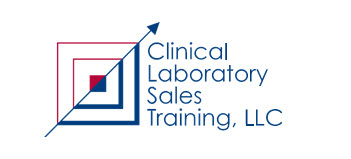Supercharging Your Sales Force Effectiveness
SALES TRAINING

By Peter T. Francis
Selling commercial laboratory services and hospital outreach (to non-hospital practice physicians) usually embodies a long sales cycle—and it’s not what most sales reps would define as a walk-in-the-park.
Sales success equates to a number of factors: (1) periodic training of lab operation updates, competitor analysis, strategy, tactics, compliance review, (2) the rep’s innate abilities, good organizational habits and applying taught concepts, (3) professional persistence and, (4) if possible, management coaching during co-rides.
Lessons Learned
One significant path in any branch of sales associates with building trust and credibility. Typically, this takes time and rapport-building efforts. However, I have observed some lab salespeople immediately expatiate on their services portfolio without gaining any background data. Assuming the client remains content with their lab, this approach results in a turn-off and a tune-out, not to mention a disappointed representative. You must first gain credibility by asking questions, listening and developing “moments of trust”—those little things you say and do overtime that demonstrate your interest in the client’s success.
When I first began selling laboratory services, a doctor once told me before I started to speak, “Look—don’t give me the same old pitch about free collection supplies, next-day turnaround time, high-quality test results and excellent customer service. I expect those things. Tell me what makes your lab different from the one I use so I can make a comparison.” That brusque declaration was like a bucket of cold water tossed on my face. Being new to my job, I didn’t think my lab had any major differences—we offered the same basic elements the doctor explained. I sheepishly discussed our “vanilla” service. It certainly didn’t get me very far for that visit, but that conversation from many years ago changed how I approached my job—for which I am forever grateful.
The following strategies are just a few that salespeople should develop to become more professional, better position themselves, and augment their effectiveness in their day-to-day customer calls.
-
Develop a Reason for Every Call
-
Take Advantage of Comprehensive Relationships
-
Your Lab’s Basic Differences
While it may seem apparent, it is key for a sales representative to develop—prior to making a call— a legitimate reason the customer would appreciate. Too often, reps (and I include myself as a neophyte) will stop by a prospective customer with the primary agenda of “checking on how things are going with the lab.” Then, hopefully, they will get a chance to make a sales presentation. While it may sound like a logical approach, it’s not ideal—not to mention an expensive price tag for the employer. The rep hopes there stands a small chance the current laboratory service has degraded or changed in some fashion, the client’s frustration has intensified, and interest has risen to a high enough level to want to hear from another lab marketer. But, alas, “hope” has never been a strategy. A far more effective style relates to having a customer-centric rationale for wanting to speak with someone (typically the practice administrator or physician). Perhaps it will be information about a unique test/profile, a substantial turnaround time improvement, an informative monthly statistical report, an announcement of a new patient service center, a relevant medical abstract, or a USPSTF, FDA or CMS announcement. Salespeople must keep in mind that, in these drop-in situations, the time they want to spend with someone disrupts the customer from paying attention to their office operations and their clients. The visit should center itself on a topic the customer would find relevant, versus a rep’s egocentric mindset of, “I want to sell them on the incredible attributes of my incredible lab.”
Statistics have shown that clients place about 50 percent of their selection criteria based on the sales experience (notwithstanding ownership or political situations). When a rep demonstrates ways for the client to perform their job better, save them time, reduce errors, enhance patient care, save healthcare dollars, etc., they are taking a key step toward showing value. Obviously, it takes (1) knowledge of your own lab and the competitor, (2) a client-focused approach and (3) time to earn respect.
Assuming the marketing person builds a good relationship with one person within an account (current or prospective), he/she needs to expand this situation with others. Throughout my management career, I frequently heard stories like this: “I have a great relationship with our client, Dr. Johnson’s office. Susie, the office manager, is very nice to me. If I stay in contact with her, we’ll always keep his account. We get along great.”
My response: “That’s terrific. But, let me ask: who ultimately makes the lab decision? Susie? If, on the other hand, it’s Dr. Johnson, what do you think he would say about you and our lab? Also, most critically, what would happen to the account relationship if Susie left her job?”
Some salespeople admit they rarely speak to the provider—just their “main contact.” Additionally, in the case of covering an existing client after taking over a territory, they may be unsure who makes the final decision about selecting labs. The assumption corresponds to the doctor, but “assuming” travels into dangerous territory. Understanding office politics and policies relating to labs remains essential when coordinating a solid strategy. That wonderful bond between the sales rep and his/her primary contact can create a false sense of security. A competitor can waltz in, establish firm rapports with the staff (especially strong influencers and the decision-maker), and eventually win the business. There may be no barn-burning concerns with the incumbent lab, but the marauding rep may do a masterful job of simply “out-selling” his/her competitor. Take it from one who knows. Being a de novo field rep many years ago, within a few months of inheriting a territory from another rep, I lost an account because of this scenario. I learned my lesson well. On the other side of the coin, some years later, I rewarded myself by out-selling a competitor from a client that initially claimed they were not having any issues. Indeed, I felt rather smug!
In the introduction, I broached the subject of knowing your lab’s basic differences against other competitors. This stands as a crucial point, and it’s worth repeating. Most clients feel labs are basically the same: specimen goes out, report returns. Easy-peezy. Sales reps commonly say they sell a “superior service,” but that equates to a glittering generality. Looking for unique strengths and basic differences within your lab involves a comprehensive knowledge of your operation—and mashing that material up against each competitor. Your laboratory’s uniqueness may mean different things to different people. You must first ask relevant questions that lead to your lab’s differences (you don’t lead with differences). People value their own conclusions more than they value what somebody else tells them. This humanistic bias offers credence to the sales edict of probing first instead of starting with “telling.”
For example, a laboratory I once worked for had a board-certified hematopathologist on staff who, earlier in his career, was a board-certified oncologist with his own practice. This seemingly inconsequential piece of information turned out to be very helpful in a sales call with an oncology practice. When I initially asked the office manager her opinion about this, she didn’t seem to care. But, when talking to the lead physician of the group, I asked him, “Would you consider it important to know that our hematopathologist previously had experience as a practicing oncologist?” The doctor said “yes.” I subsequently showed him a copy of our pathologist’s curriculum vitae, pointing out the clinical experience. Seeing is believing. I closed the account.
The point of this example demonstrates that a field representative’s job entails more than simply knowing the basics of testing specimens and delivering results. Sales reps may not have any notion that certain aspects of their lab hold any significance for a client until the field rep uses deft questioning skills that correspond to their lab’s basic differences.
One other essential point: In past situations where our lab was one of several competitors vying for the business (where price was not a factor), I have heard on more than one occasion this type of remark from my salesperson: “I’m really bummed. I’m sorry to report that the client decided to use XYZ Lab instead of us.” My response: “No—‘clients’ don’t select a lab service. One person said Yes for whatever reason(s). Other influencers probably gave their opinions, but only one person had the ultimate authority to move forward with a different lab. Frankly, your presentation was not as convincing as the winning lab in one or more of four primary areas: (1) what our lab will personally do for the decision-maker, (2) what it will do for others in the office, (3) what it will do for their patients, and (4) how much trust and credibility they felt with you. Removing—or not emphasizing—the benefits of these things jeopardized gaining a new account.”
Conclusion
The topics mentioned in this paper may appear to be obvious, but my experience has shown that, unfortunately, not all salespeople have been properly trained to use them—nor do they diligently burrow into the details of their lab. These strategies can bestow trust and credibility with both current and potential clients. They can supercharge your sales effectiveness.
If the reader has any questions or comments about the content of this paper, please e-mail Peter at: peter@clinlabsales.com
Peter Francis is president of Clinical Laboratory Sales Training, LLC, a unique training and development company dedicated to helping laboratories increase their revenues and reputation through prepared, professional and productive representatives. Visit the company’s website at www.clinlabsales.com for a complete listing of services.




No Comments